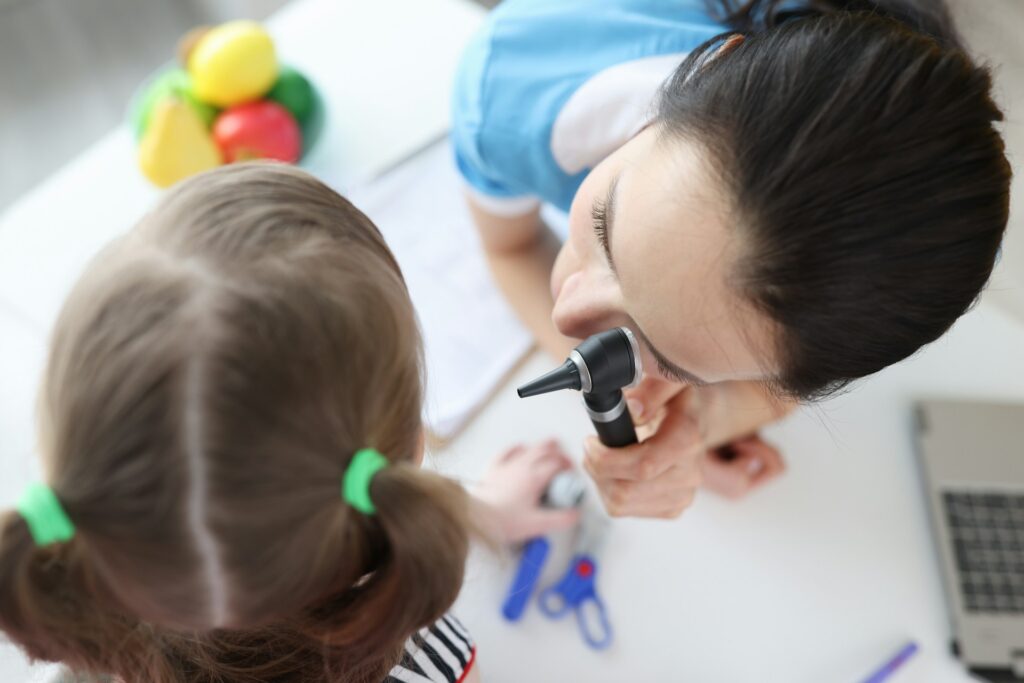Hearing is one of the important senses that help us communicate with our surroundings. It enables us to listen to sounds, music, and speech. However, hearing loss and other related disorders can affect the quality of life. For this reason, taking care of our hearing health is essential to prevent hearing problems, such as auditory processing disorder (APD).
APD is a condition that affects the way the brain processes sound. It is a complex disorder that can affect children and adults, significantly compromising the quality of life because it can interfere with understanding sounds, especially in noisy environments. Moreover, APD treatment is also complex because it requires a comprehensive evaluation by an audiologist or speech-language pathologist to identify the specific auditory processing difficulties and develop a personalised treatment plan. Few people know about this, so we will discuss the details in this article.
What Is Auditory Processing Disorder?
APD is a neurological disorder that affects sound processing in the brain. It is not a hearing loss but a problem in how the brain interprets the sounds. In short, a person with APD may have difficulty processing the information they hear, even if their hearing is normal.
For example, if someone with APD is in a noisy environment, they may have difficulty focusing on a particular sound, such as a conversation. They may also have trouble distinguishing between sounds like “bat” and “cat.” Additionally, they may struggle to follow instructions involving auditory information, such as following a lecture or completing a verbal task.
Various factors cause APD, including:
Genetics
Evidence suggests that genetics may play a role in the development of APD. Studies have shown that the disorder tends to run in families, with a higher incidence of APD in children with a family history of the condition. This suggests that genetic factors may contribute to the development of APD.
Some research has also identified specific genes that may be associated with APD. For example, a study of twins found that variations in the gene FOXP2, which is involved in language processing, were related to auditory processing difficulties. Other genes linked to APD include CNTNAP2, which is involved in neural communication, and DCDC2, which is involved in brain development.
Head Trauma
Head trauma has also been linked to APD, particularly in cases where there has been damage to the auditory cortex or other areas of the brain involved in auditory processing. This can occur due to a traumatic brain injury or a concussion.
The severity of the head trauma and the location of the damage can impact the severity of APD symptoms. For example, damage to the brain’s left hemisphere may result in language processing difficulties. In contrast, damage to the right hemisphere may affect the ability to process sounds in the environment.
Illness
Certain illnesses, such as meningitis and multiple sclerosis (MS), are also known to cause APD. Meningitis, an inflammation of the protective membranes surrounding the brain and spinal cord, can damage the auditory nerve and result in hearing loss and APD. MS, a chronic autoimmune disease that affects the central nervous system, can cause damage to the myelin sheath that surrounds nerve fibres, leading to disruptions in auditory processing.
Anoxia
Anoxia, or lack of oxygen to the brain, can also result in APD. This can occur for various reasons, such as near-drowning, carbon monoxide poisoning, or cardiac arrest. The lack of oxygen to the brain can cause damage to the auditory pathways and result in difficulties with auditory processing.
Premature Birth
In children, one of the leading causes of APD is premature birth. This is because the auditory system is still developing in the womb during the final trimester, and premature birth can interrupt this process. Premature infants may also have other health issues affecting their hearing and auditory processing abilities.
Symptoms of APD
The symptoms of APD can vary from person to person. Some people may have difficulty understanding speech in noisy environments, while others may have trouble following conversations. Common symptoms of APD include:
- Difficulty understanding speech
- Difficulty processing rapid speech
- Difficulty filtering out background noise
- Difficulty maintaining focus in noisy environments
- Being easily distracted by sudden sounds
APD in Children
APD in children is typically diagnosed early, with symptoms first appearing in early childhood, when children are developing language and communication skills. Children with APD may struggle to understand speech in noisy environments, follow directions, and distinguish between similar sounds. In some cases, APD may be mistaken for other conditions, such as ADHD or learning disabilities, so you must have a thorough evaluation by a qualified professional to determine the underlying cause of the child’s challenges.
APD in Adults
APD can also affect adults, although it is often not diagnosed until later in life. Adults with APD may have difficulty communicating in noisy environments, understanding speech on the telephone, and following complex conversations. They may also struggle to remember what was said or have trouble reading and writing. APD in adults can lead to social isolation, anxiety, and depression, so it is important to seek diagnosis and treatment if you suspect you may have APD.
Treatment Options
A hearing test can determine the severity of APD. Unfortunately, there is no cure for APD. However, there are treatment options available to help manage the symptoms. These include:
Auditory Training
Auditory training involves working with a professional to improve auditory processing abilities through exercises and activities that help train the brain to process speech sounds better. It also involves teaching individuals compensatory strategies to improve their speech understanding in noisy environments.
Assistive Listening Devices
Assistive listening devices, such as hearing aids or FM systems, can help improve speech understanding in noisy environments or when listening to distant sounds. These devices amplify sound and make distinguishing speech from background noise easier.
Lifestyle Changes
Making lifestyle changes can also help improve auditory processing abilities. This may include reducing exposure to loud noises, maintaining a healthy diet and exercise routine, and managing stress. Regular hearing check-ups and seeking treatment if hearing loss is detected are also recommended.
Conclusion
APD is a complex condition that can significantly impact a person’s ability to communicate and learn. However, with proper diagnosis and treatment, individuals with APD can improve their auditory processing abilities and lead more fulfilling life. All that matters is seeking help from a qualified audiologist, speech-language pathologist, or other healthcare professionals to receive an accurate diagnosis and develop a personalised treatment plan.
If you’re looking for a hearing clinic in Mildura, Country Hearing Care is for you! We offer comprehensive hearing tests to determine the best treatment for our patients. Call us today at 1800 432 748 to schedule an appointment!










